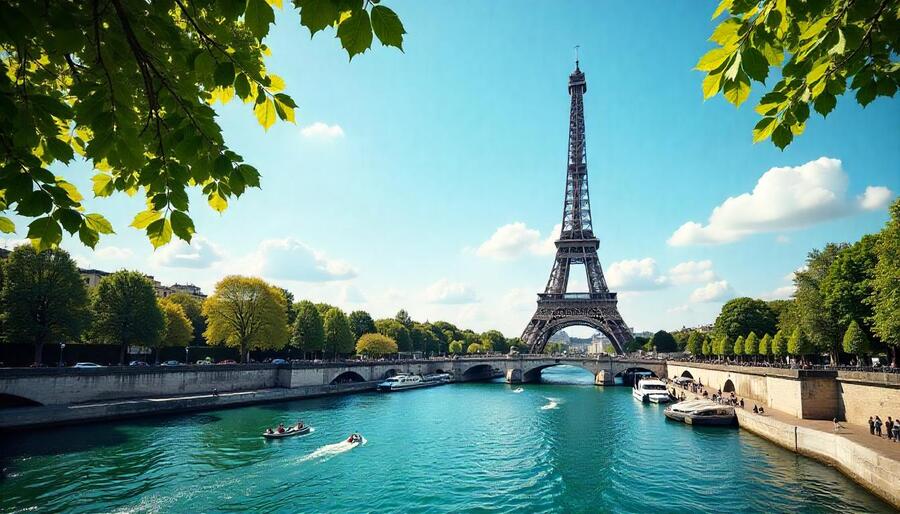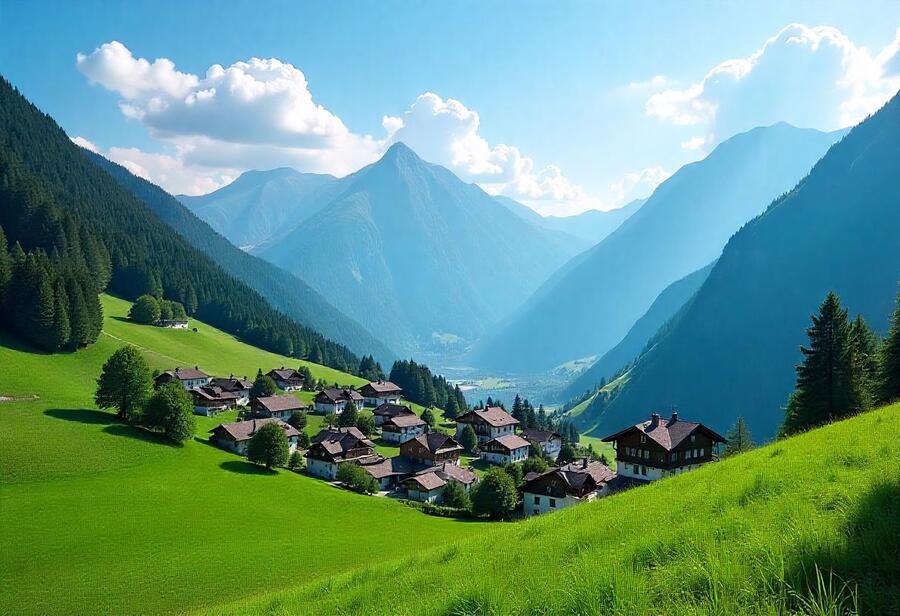≡-France Shatters Global Tourism Records But Bleeds Billions in Lost Revenue as Short Stays and Low Spending Undermine Economic Gains – Viral of Today
<> Viral of Today <>
Home » EUROPE » France Shatters Global Tourism Records But Bleeds Billions in Lost Revenue as Short Stays and Low Spending Undermine Economic Gains Monday, July 7, 2025France smashed all-time records for global tourism in 2024 when it welcomed a record 100 million foreign tourists, but beneath the record-breaking stat lies the costly dilemma: tourists are staying for just as little time and spending significantly fewer days in France as they do in major alternative destinations such as the United States or Spain. This imbalance has witnessed France losing ground in tourism earnings, with billions in potential income and jobs being forfeited. Though central European access and cultural attractions continue to entice global tourists, deficiencies in quality lodging, lackluster regional marketing, and subpar infrastructure are providing obstacles for France in converting visitor traffic into long-term economic impact.France reaffirmed its global status as the world’s most visited country in 2024, welcoming an impressive 100 million international tourists, according to official data. With iconic landmarks, diverse regions, and a rich cultural heritage, the country continues to be an essential stop on many travelers’ European itineraries. However, while France leads in arrivals, a deeper analysis reveals a significant shortfall in revenue compared to its peers.Despite achieving a record-breaking number of tourist arrivals, France only ranked fourth in global tourism receipts, trailing behind the United States, Spain, and Japan. This discrepancy highlights a growing concern within the French tourism sector: visitors are spending less time and money, prompting calls for an urgent shift in strategy to fully unlock the sector’s economic potential.A Paradox of Popularity: More Visitors, Less RevenueFrance’s allure as a premier tourist destination is undisputed. Its architectural wonders, from the Eiffel Tower and Notre-Dame Cathedral to the lavender fields of Provence and vineyards of Bordeaux, continue to attract tourists from every corner of the globe. Yet, this immense popularity does not translate into proportionate economic gains.In 2024, France earned €71 billion from international tourism, while Spain, with fewer total visitors, recorded a remarkable €126 billion. The contrast is especially striking when comparing average daily tourist expenditures: international visitors to France spent approximately €650 per day, significantly less than the nearly €1,000 per day tourists spend in Spain.This pattern suggests that France is increasingly seen as a short-term stop rather than a primary vacation destination. Many international tourists, particularly those from North America and Asia, include Paris in multi-country European tours, often opting to spend more time in cities like Barcelona, London, or Rome, where accommodation and travel expenses are perceived to offer better value for money.A Missed Economic OpportunityTourism is a cornerstone of the French economy, contributing between 5% and 8% of the national GDP and supporting roughly 2 million jobs across the country. Yet, the current gap in spending highlights an urgent issue: France is underperforming in converting tourist interest into economic value.Estimates suggest that if tourists in France matched Spanish spending levels, the country could see a potential boost of up to €28 billion in annual tourism receipts. That additional revenue could translate into 280,000 new jobs, according to industry analysts. The multiplier effect would ripple across hospitality, retail, transportation, and other supporting sectors—stimulating regional economies and helping fund public services.Challenges in Infrastructure and AccommodationOne of the critical limitations France faces in capturing more revenue from tourists is its underdeveloped accommodation infrastructure. As of 2024, the country’s supply of 2 million beds across hotels and campsites has remained stagnant since 2004. Though online rental platforms such as Airbnb, Booking.com, and Homelidays have added an estimated 1 million additional beds, many of these listings are unregulated and fall short of modern international quality standards.This stagnation in accommodation development limits France’s capacity to host visitors who may otherwise consider extending their stay. Furthermore, the lack of high-end lodging options in some regions deters affluent travelers who might otherwise contribute significantly to tourism revenue through longer and more luxurious visits.Strategic investments in both luxury and mid-range hotels, as well as in the development of eco-resorts and experience-based lodgings in rural areas, could help France better cater to evolving traveler expectations.Safety, Transport, and the Visitor ExperienceIn addition to accommodations, the overall tourist experience in France requires refinement. Issues surrounding public safety, particularly in transport hubs and major cities, often receive negative attention and may discourage repeat visits. Enhancing the security and user-friendliness of metro systems, railway stations, and airports could play a pivotal role in shaping a more welcoming environment for international travelers.Hospitality in service industries—including dining, retail, and cultural sites—also needs improvement. Tourists increasingly value authenticity and warmth in their interactions. France’s reputation for aloof or inconsistent service has been cited in visitor reviews and could influence decisions about length of stay and destination preference.Training programs aimed at improving multilingual service, digital integration for smoother tourist experiences, and better signage in regional areas would significantly help non-French-speaking tourists feel more confident exploring beyond Paris.Comparing France and Spain: A Tourism Strategy GapThe case of Spain’s tourism success offers critical lessons for France. Spain’s appeal rests not only on its sunshine and coastline but also on a well-integrated tourism infrastructure and affordability that keeps travelers engaged for longer periods. Spain has heavily invested in diverse regions, offering unique cultural and gastronomic experiences across cities like Valencia, Seville, and San Sebastián—not just Madrid and Barcelona.Spain’s hospitality ecosystem has also capitalized on digital marketing trends, promoting off-season travel and eco-tourism while offering attractive accommodation packages. By contrast, France has focused largely on established urban centers like Paris, Marseille, and Lyon, without sufficiently spotlighting lesser-known destinations such as Alsace, Brittany, or the Dordogne.The potential to diversify tourist flows and reduce pressure on overburdened urban sites exists—but requires a coordinated, national strategy.Policy Solutions and Investment PrioritiesTo rectify these imbalances, tourism experts and economists are urging the French government and private stakeholders to adopt a multi-pronged strategy aimed at long-term sustainability and profitability. Among the key recommendations are:Expansion of Quality Lodging: Incentivize hotel development in under-served areas and enforce quality standards across all short-term rentals.Infrastructure Upgrades: Improve airport, railway, and local transport systems, particularly in secondary cities and tourist-heavy zones.Safety Initiatives: Increase law enforcement presence in tourist areas and implement real-time alert systems to ensure traveler safety.Destination Marketing: Promote regional tourism through digital campaigns, focusing on nature, gastronomy, culture, and wellness.Sustainability Programs: Develop eco-tourism and green infrastructure, aligning with global travel trends favoring sustainable tourism.Summer 2025 and the Road AheadAs summer 2025 approaches, France stands at a critical crossroads to redefine and strengthen its tourism strategy, aiming for sustainable growth and deeper economic impact in the years ahead. The Olympic Games in Paris are expected to draw millions more international visitors. This unique opportunity offers a global platform to reshape perceptions and showcase improvements in tourist infrastructure, safety, and hospitality.However, the spotlight will also magnify existing flaws if left unaddressed. If France fails to seize this moment, the country risks reinforcing its status as a transit stop rather than a core destination. With global competition from countries such as Italy, Spain, Japan, and even emerging players like Portugal and Croatia, France can no longer rest on its laurels.From Transit Destination to Tourism PowerhouseFrance’s achievement of attracting 100 million international tourists in 2024 marks a groundbreaking moment in global travel, setting a new standard in the world tourism industry. But the disparity in tourism revenue compared to other countries reveals an urgent call to action. To transform its tourism model, France must move beyond celebrating visitor numbers and focus instead on increasing the quality and duration of visits.France broke global tourism records with 100 million visitors in 2024, but short stays and low spending mean billions in revenue are slipping away. Despite its popularity, inadequate infrastructure and limited tourist engagement are undermining France’s economic gains.This means expanding accommodation capacity, enhancing the guest experience, making destinations outside Paris more accessible and attractive, and implementing national strategies that promote longer stays and higher expenditures. With thoughtful investment and policy alignment, France has every opportunity to become not just the most visited country—but the most rewarding one for both travelers and its economy.«Enjoyed this post? Never miss out on future posts by following us»
This information will surprise you!
See also
- Read until the end to discover everything.
- Important information you need to know.
- Interesting facts and helpful tips.
Conclusion
Did you enjoy the news? Keep following us daily!













